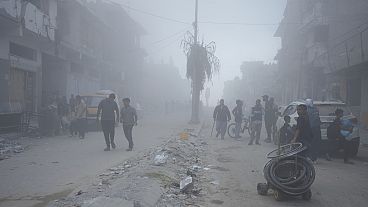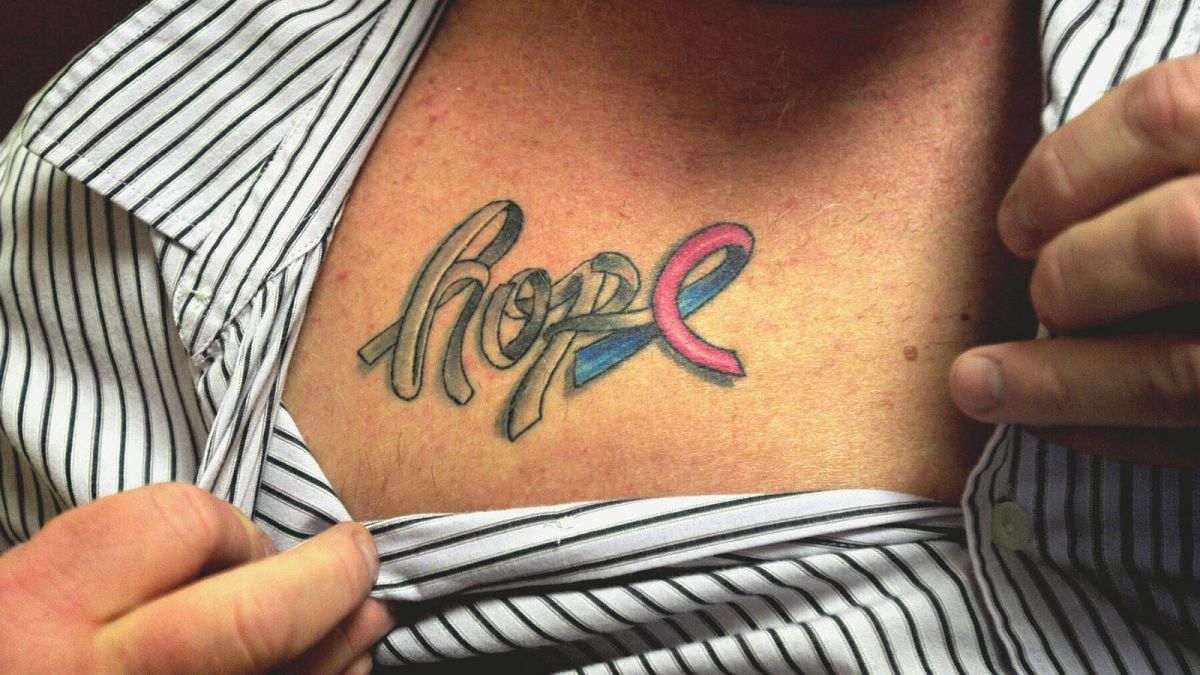Millions of cancer survivors in Italy and Spain face discrimination when applying for insurance or loans, with their medical history tanking their chances of obtaining long-term deals -- even when they've been cancer-free for decades.
At the age of 18, Francesco, now in his 30s, was diagnosed with thyroid cancer. After a treatment that lasted 26 months, he was cured, and the cancer never came back.
But when, over 10 years later, he tried to adopt a child with his partner, he was told that he wasn’t allowed to, his medical history suddenly becoming an insurmountable challenge.
Laura, 45 and an avid dancer, survived breast cancer. After five years of treatment, she recovered completely -- but when she asked her bank to support her in opening her own dance school 15 years later, she was told that her previous cancer diagnosis would prevent her from getting a long-term mortgage.
“I don’t think it’s right, I recovered many years ago,” Francesco told the AIOM Foundation, a cancer-awareness group which is collecting signatures to protect the rights of cancer patients against discrimination. “We should all be free to live without feeling like we could die at any moment.”
“I lived it as an injustice, the return of the disease some 15 years after I have been cured,” Laura said.
Francesco and Laura are among the thousands of people in Italy who are calling for the country to introduce the ‘right to be forgotten’ for oncological patients, a law which would allow cancer survivors from disclosing their medical history when applying for mortgages, loans, insurances and adoptions.
In February last year, a draft law which would have forbidden companies from requesting the medical history of oncological patients was introduced to the relevant commission in the Italian Senate, the Justice Commission.
Under the law, called Ddl 2548, adults who have been cancer-free for at least 10 years would be able to refuse to disclose their cancer as part of their medical history, while those who got sick before the age of 21 would only need to wait five years. For some specific types of cancer, like leukaemia, breast cancer and prostate cancer, the times are a bit longer, between 15 and 20 years.
But as of today, over one year later, the proposal -- which only covers access to financial services and work -- is yet to reach lawmakers, despite urgent calls from cancer patient rights groups and over 100,000 citizens who signed a petition urging the government to act.
An unexpected setback in Spain
Spain was set to introduce the right to be forgotten for oncological patients, called “el derecho al olvido oncológico”, next month, as per a promise made by the current government led by Prime Minister Pedro Sanchez.
Under the proposed law, any former cancer patient who has completed treatment five years prior without any subsequent relapse would not be required to disclose the information when signing a contract for a loan or insurance.
The decision was celebrated by advocates in the country, with the Spanish Association Against Cancer (AECC) saying the law “represents a great step for the social protection of cancer patients.”
But as Sanchez called for snap elections earlier this month and dissolved Parliament, the legislation has been sidelined, and will not be passed next month.
Instead, it will be postponed until the constitution of a new Parliament.
The Josep Carreras Foundation, which has helped bring the issue of the right to be forgotten under the spotlight in Spain, has called on all political parties with parliamentary representation to include the law in their electoral program, so as to allow it to still proceed without delays once a new Parliament is formed.
“I want to be positive,” Antoni Garcia Prat of the Josep Carreras Leukaemia Foundation told Euronews. “It’s through that the law is delayed until a new government is established, but from another point of view it gives us some time to build more consensus, to improve some of the provisions that are now being debated,” he continued.
“We hope that politicians will continue to support this law. The sooner we get this right signed into law, the sooner for the patients and their families,” he added. “But we get a chance to persuade legislators to include patients who have chronic diseases but are able to survive into the law.”
The group is also considering including in the law other measures which could help cancer survivors, like allowing patients to continue their studies from where they have them interrupt them and don’t pay extra fees.
Only a few good examples in Europe
Italy and Spain are among many countries in Europe which are still struggling to recognise the right to be forgotten for cancer survivors who have long been cured of their illness.
As of now, only six countries in Europe have already introduced right-to-be-forgotten laws for former oncological patients, including France in 2016, Belgium in 2019, Luxembourg and the Netherlands in 2020, Portugal in 2021 and Romania in 2022.
France recently updated its law, which previously applied from ten years after treatment, to five years after treatment.
In February last year, the European Union called on all member states to introduce the right to be forgotten for cancer survivors across the bloc by 2025 and for the right to be enshrined in the relevant EU legislation. But with less than two years to go, there’s still a long way to go.
A growing issue
Overall, there are 20 million people who have survived a cancer diagnosis in Europe -- 4.2% of the total resident population and 35% of which is made of long-term survivors, according to the European Cancer Patient Coalition.
The EU registers 2.6 million new cancer diagnoses each year, according to the Commission. The population of cancer survivors is expected to grow by 3% every year in the future, as updated and improved diagnostic and treatment processes allow for better chances of recovery -- making the issue surrounding the right to be forgotten even more urgent.
In Italy, the problem impacts an estimated 3.6 million people who have recovered from cancer, one million of which could be considered cured by a medical standpoint, but who are still discriminated against when taking major steps in their lives -- like asking for a loan or trying to adopt a child -- because of their previous illness.
Lorenzo Do, a lawyer at the legal studio Studio Maffei, told Euronews that the fate of the existing proposal to introduce the right to be forgotten is uncertain, as a lot depends on the priority given to different laws to be discussed in Parliament and the pressure made by parliamentary groups to push forward the law quickly.
In Spain, according to the annual report published by the Spanish Society of Medical Oncology, the incidence of cancer is expected to increase in the coming years, with an estimated number of new cancer cases of 279,260 for the year 2023. In the country, the five-year net survival from diagnosis of patients diagnosed in the period 2008-2013 was 55.3% in men and 61.7% in women.
According to Garcia Prat, there are about 2.2 million cancer survivors in Spain who are currently affected by the lack of a right to be forgotten law in the country’s legislation.
But Garcia Prat is positive that the issue of passing this law as soon as possible won’t be sideline too much longer.
“One in three of us will have cancer in their lifetime, on average, and many people have somebody close who has gone through it,” he said. “I think the consensus is so wide that I’m really positive and optimistic that we will be able to move ahead quite well in the next months.”












